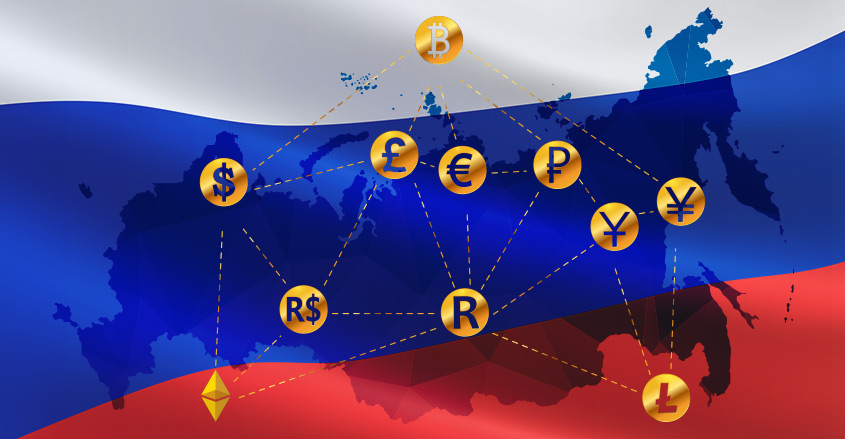The Ministry of Finance of the Russian Federation has presented sweeping legislation entitled The Digital Assets Regulation Bill, in an effort to establish a legally sanctioned system for cryptocurrencies, ICOs, mining and trading, as well as rules for exchanges and individual investors.
The bill needs approval from Russian’s federal legislature but has been challenged by Russia’s own central bank.
It’s far from clear who will win this power struggle. Alexei Moiseev, Russian Deputy Finance Minister, said that the Finance Ministry “supports the legalization of trade in cryptocurrencies on official exchanges.”
According to Moiseev, the Finance Ministry “[does] not want to limit and regulate, but we will set some limits. This is about the fact that buying and selling cryptocurrencies will be somehow standardized. The general idea is that it will be necessary to buy and sell on official exchanges, as it will be declared, it will be legalized.”
The bill would allow for more open cryptocurrency trading and investment within Russia. Moiseev said that the Finance Ministry is still considering which exchanges would be approved.
The news was celebrated by industry insiders as another sign of growing trust among government and cryptocurrencies.
The central bank of Russia, however, disagrees with Ministry of Finance that exchanges should be legally accepted. According to the bank, the digital currency trading rules should be only applied to tokens and not coins, ICOs, or other cryptocurrencies.
“The Russian government should be encouraging investment instead of speculation,” a mid-level spokesperson for the central bank said recently.
“Neither crypto coins nor tokens are considered legal tender in the Russian Federation and we should not allow legislation that treats that as such without deliberation.”
Public feud
This feud between parts of the Russian government has been public since last spring, when cryptos began their ascent to hundreds of billions of dollars. That was also the period when rumors began circulating that Russian officials were using cryptos to avoid U.S. sanctions.
In November, Nikolay Nikiforov, head of Russia’s Ministry of Communications said the country would “never” legalize Bitcoin. In December, Sergey Shvetsov, first deputy of the Bank of Russia, called Bitcoin a “pyramid scheme.”
President Vladimir Putin, on the other hand has said he sees the need to regulate cryptocurrency trading in Russia, but not ban it outright.
“If we regulate, but not efficiently enough, then the government will be responsible for the difficult situations that people can get into,” Putin said.
“Right now it is the responsibility of the person himself and the government can only say ‘you can do this but you can’t do that,’ and if it’s still not clear then there will be some problems that need to be solved.”


